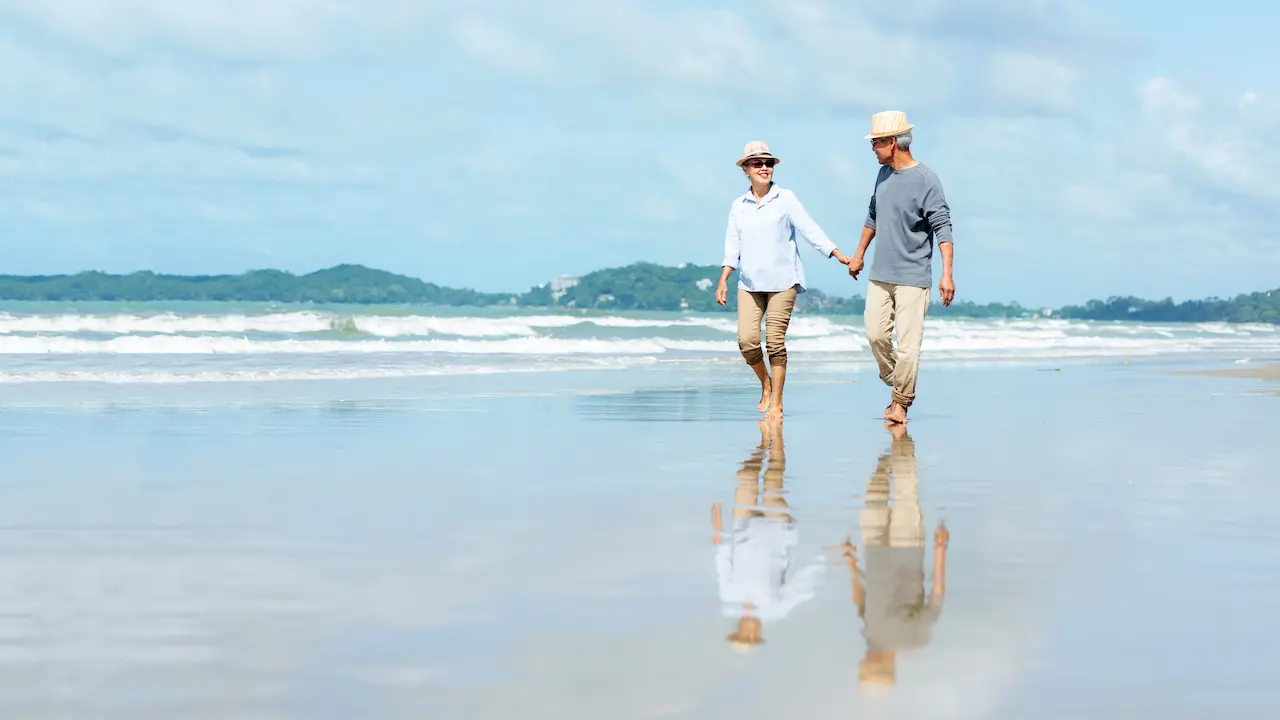Maximise Your Retirement Travel: Budget-Friendly Tips
This blog will share with you our best tips on how to budget and save money while travelling so that you can make the most of your camping and caravanning adventures.

1. Plan Your Travel Budget
Careful budget planning is key to controlling spending and keeping costs under control, particularly while travelling. Create an overall travel budget covering expenses like fuel, accommodation, food, activities and maintenance costs before embarking on any adventure.
Make budgeting even simpler by breaking up your overall budget into daily and monthly expenses. This allows you to keep tabs on spending and make adjustments as necessary; setting a daily budget allows you to monitor how much money is being spent each day, helping ensure it falls within its limits; having a monthly budget provides insight into longer-term expenses as well as an accurate picture of financial health.
Reviewing and revising your budget regularly will help keep you on top of your finances and prevent surprises from cropping up. By keeping it organized and up-to-date, travel can become much less daunting, leaving more time for enjoyment without worries over finances.
Remember to include the following in your budget: food, lodging, equipment, and fuel. Also, don’t forget about hidden costs like insurance, emergencies, and service & repair.
2. Take into account your income sources
Renting out your home while away can be an ideal way to generate additional income while travelling full-time, making the experience more manageable financially. Plus, this also ensures that it remains maintained and utilized rather than sitting vacant during its absence!
However, if you’re planning a full-time travel lifestyle and already own a home, selling may be more appropriate than renting it out. Selling can provide substantial financial gains that can help finance future adventures or retirement needs.
Before making any decisions about selling or renting your home, it’s essential to consult a financial adviser. An expert can offer tailored advice based on your overall financial health, helping you understand how different options could impact long-term health. In addition, connecting with people who have made similar choices before can offer invaluable insights and firsthand experiences; sharing practical tips that may have not come up before can also provide more informed and confident choices.
3. Shop Around
When you travel for a long time, you should always look for the best deal when it comes to expenses. Look for the best deals and discounts when booking a campsite, buying camping equipment or refuelling your vehicle. The app WikiCamps will help you find the best low-cost camping options. Most modern navigation apps, such as Google Maps, will display the fuel prices near you when you fill up your tank. Use tools such as Fuel Map Australia to manage your fuel costs.
You can save money by using a variety of tricks. For example, many caravan parks offer discounts during the week, Tuesdays and Wednesdays are often cheaper for fuel, and local markets and farm gates sell fruit and veg at a lower price than supermarkets. Facebook Marketplace is a good place to find quality second-hand camping and caravan gear.
4. Invest in Good Insurance
Travelling is inherently unpredictable and having comprehensive insurance is essential when spending extended time away from home, such as living in your caravan, campervan or car. Travel can introduce various potential hazards and uncertainties; accidents, equipment malfunctions and unexpected damages could occur at any time without adequate coverage, potentially creating undue financial strain and stress for travellers.
Adequate insurance provides a critical safeguard, protecting assets and helping manage unexpected expenses that might otherwise put a strain on your travel plans and budget. For instance, having adequate protection can ensure that when an accident happens or mechanical problems arise, having adequate cover ensures repair or replacement costs are covered quickly so your journey remains worry-free and enjoyable.
As part of your transition into full-time travel, your insurance policy must adapt to meet your changing needs. Full-time travellers often require additional coverage than occasional travellers do, so make sure your policy covers continuous habitation in your vehicle, including aspects such as liability protection, personal belongings and specialized equipment.

6. Plan Ahead
It’s important to know where you are going and when you will be there. Different regions in Australia have different peak times, and each state/territory has different school holidays. Plan your trip around these times as the cost of travelling in these areas will increase during these peak travel periods.
Be aware of the upcoming holidays, and travel peak times wherever you are going. Fuel costs will be higher if you are going to remote areas or the outback. Re-fillable fuel containers can help you save money and reduce the amount of fuel that you have to buy in high-cost regions.
You won’t regret travelling around Australia. Travelling on a budget may not be easy, but it’s possible. You don’t need to spend all of your savings to tick off Australia’s amazing landmarks. This list of money-saving tips will help you see more and spend less on your next epic adventure.
5. Slow down
Traveling at a slower pace might seem counterintuitive, but slowing down could be an effective strategy for saving on travel budget. Rushing can incur higher expenses in various categories like fuel, food, and accommodation – here is why slowing down can help:
Fuel Costs: Increased speed means higher gas consumption and expenses; however, vehicle performance tends to improve at moderate speeds, so slowing your driving down could decrease fuel expenses significantly. Furthermore, less frequent travel means fewer stops at fuel stations and overall expenses reduced for gas.
Food Expenses: Travel can lead to an increase in convenience foods and eating out, which can become increasingly expensive over time. By staying put for longer, however, you have an opportunity to shop for groceries and prepare meals in your caravan or camper and save money compared with dining at restaurants or fast food outlets.
Accommodation Costs: Many campgrounds and caravan parks provide discounts for extended stays, making extending your stay one of the best ways to reduce per-night accommodation costs and create more relaxed experiences than constant relocation. Plus, staying longer means reduced stress!
Maintenance and Repairs: Frequent travel can increase wear and tear on your vehicle, leading to higher maintenance and repair costs. By travelling more slowly and making fewer trips, however, some of these expenses may be reduced as your vehicle will experience less strain and thus need fewer repairs.
Experience and Enjoyment: Traveling slowly allows you to truly immerse yourself in each destination, giving you more time for exploring local attractions, meeting new people, and absorbing the environment – ultimately improving the overall quality of your trip and making your experience more satisfying and pleasurable.
